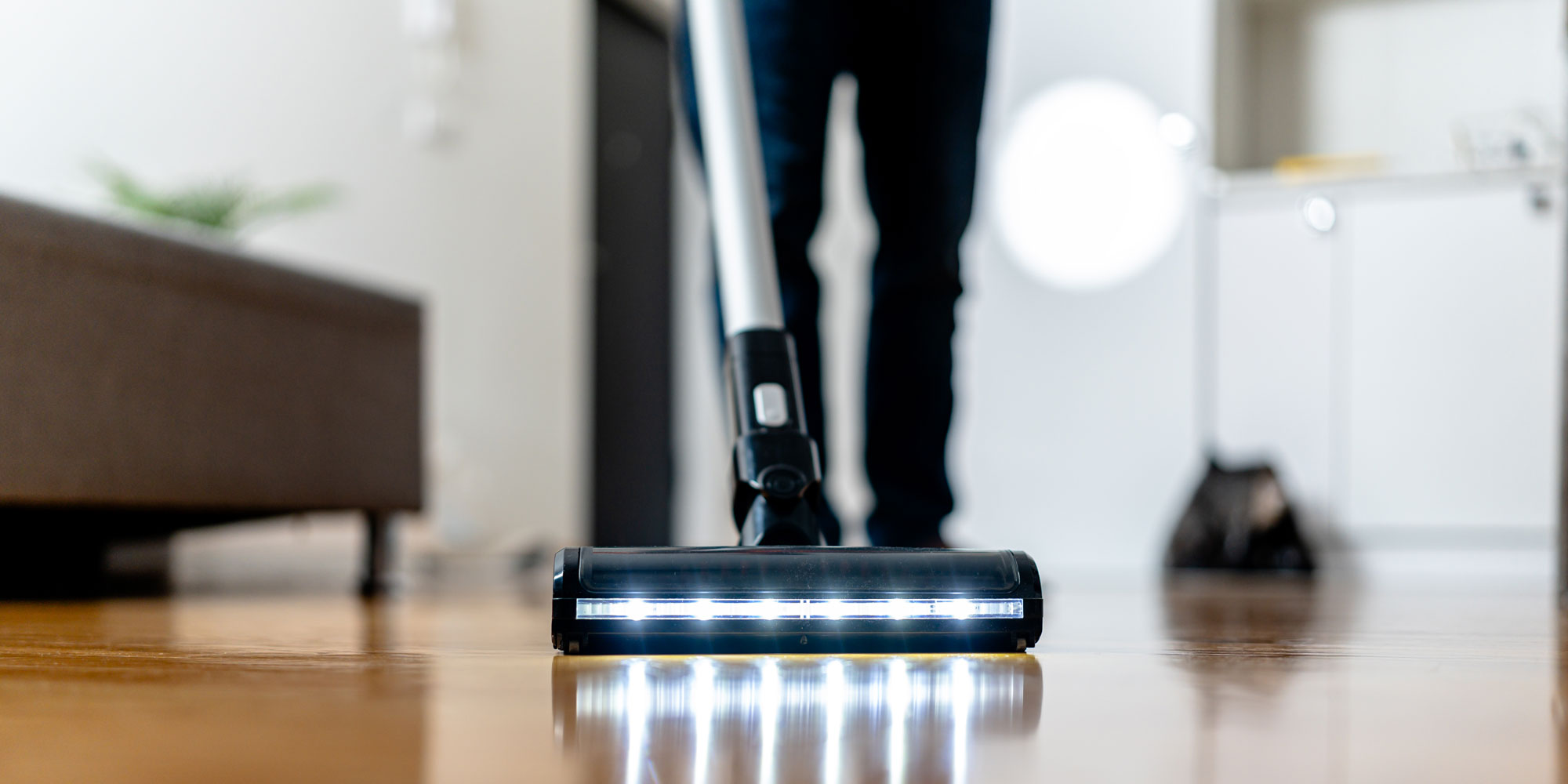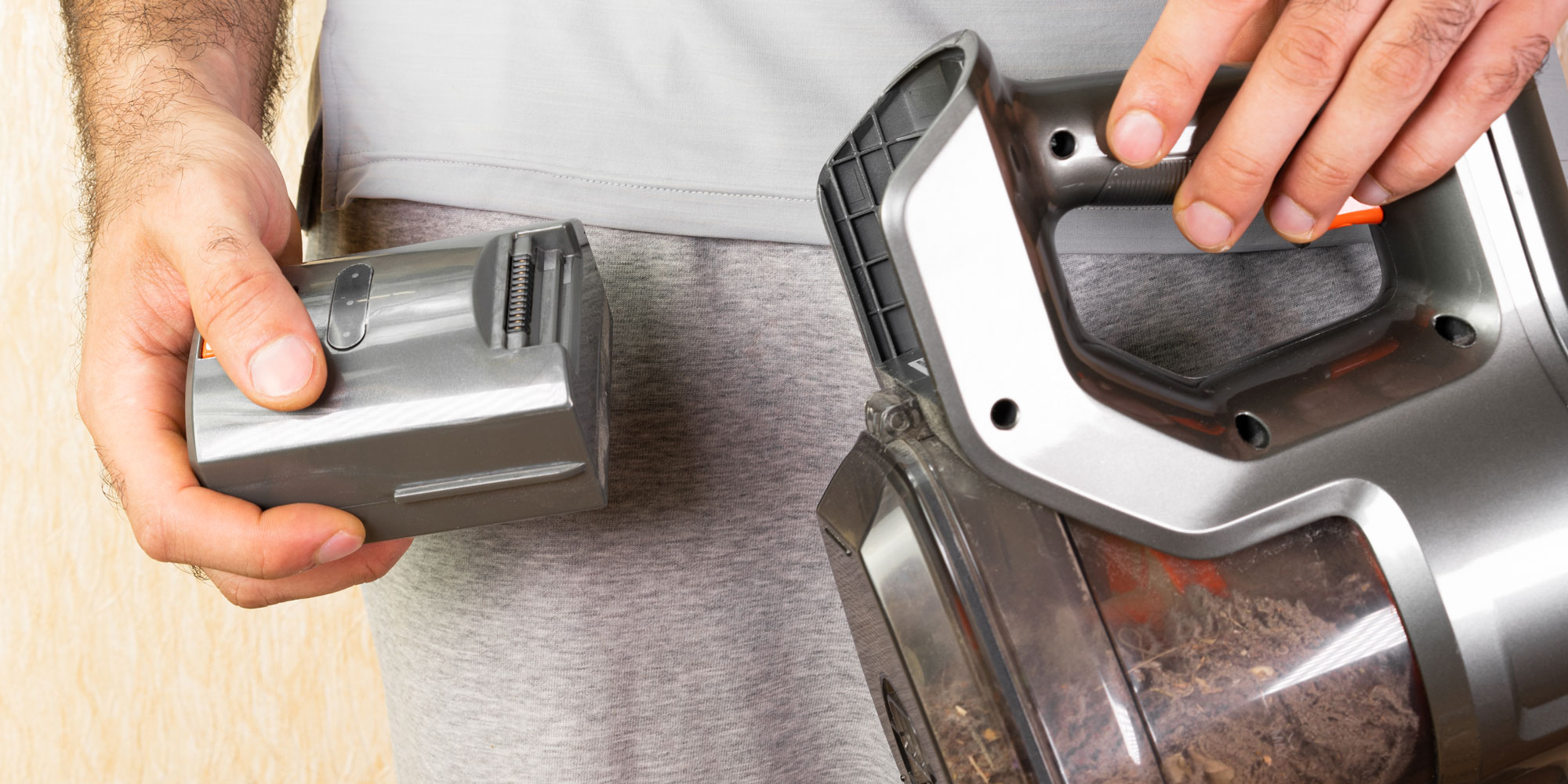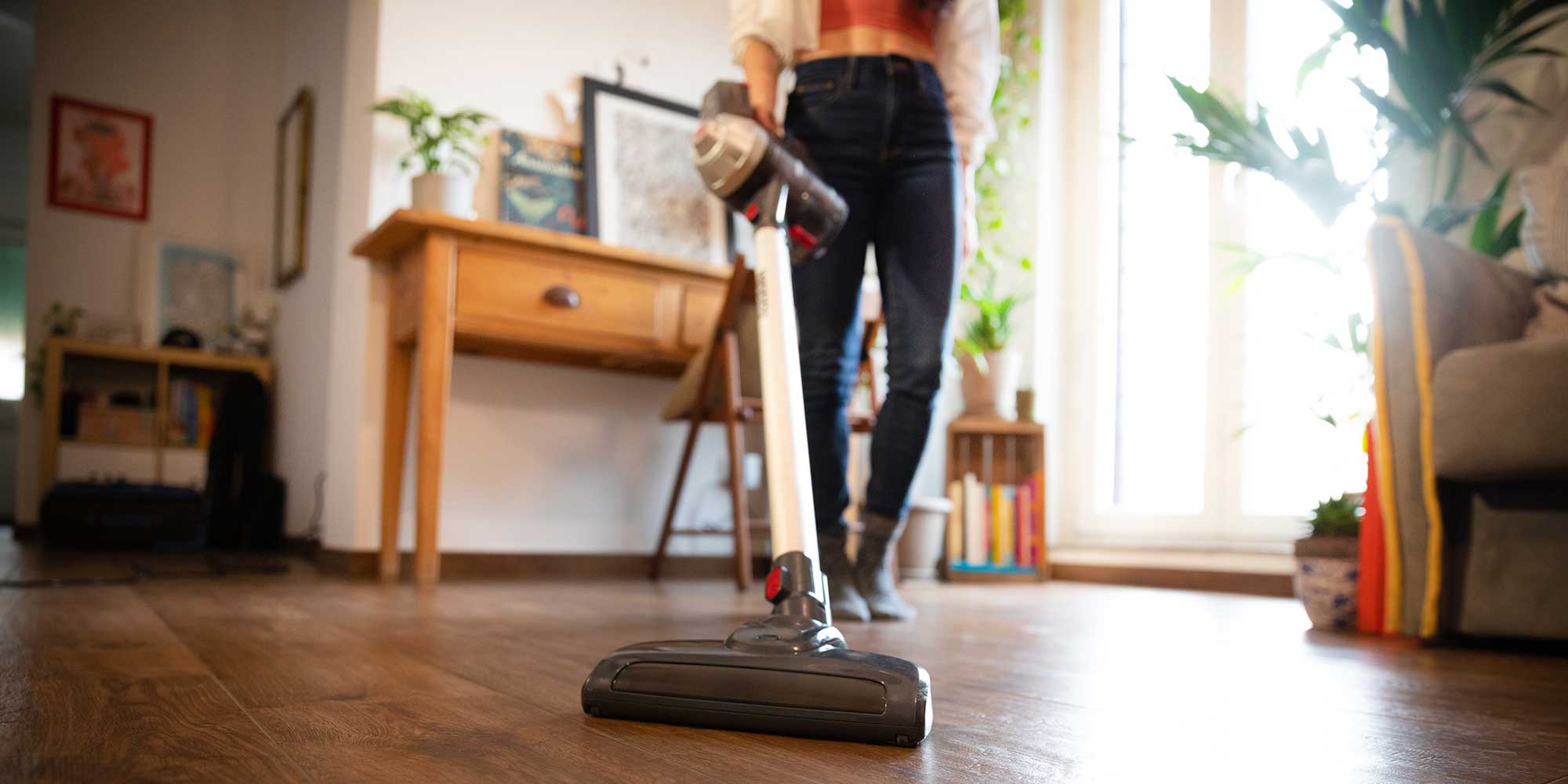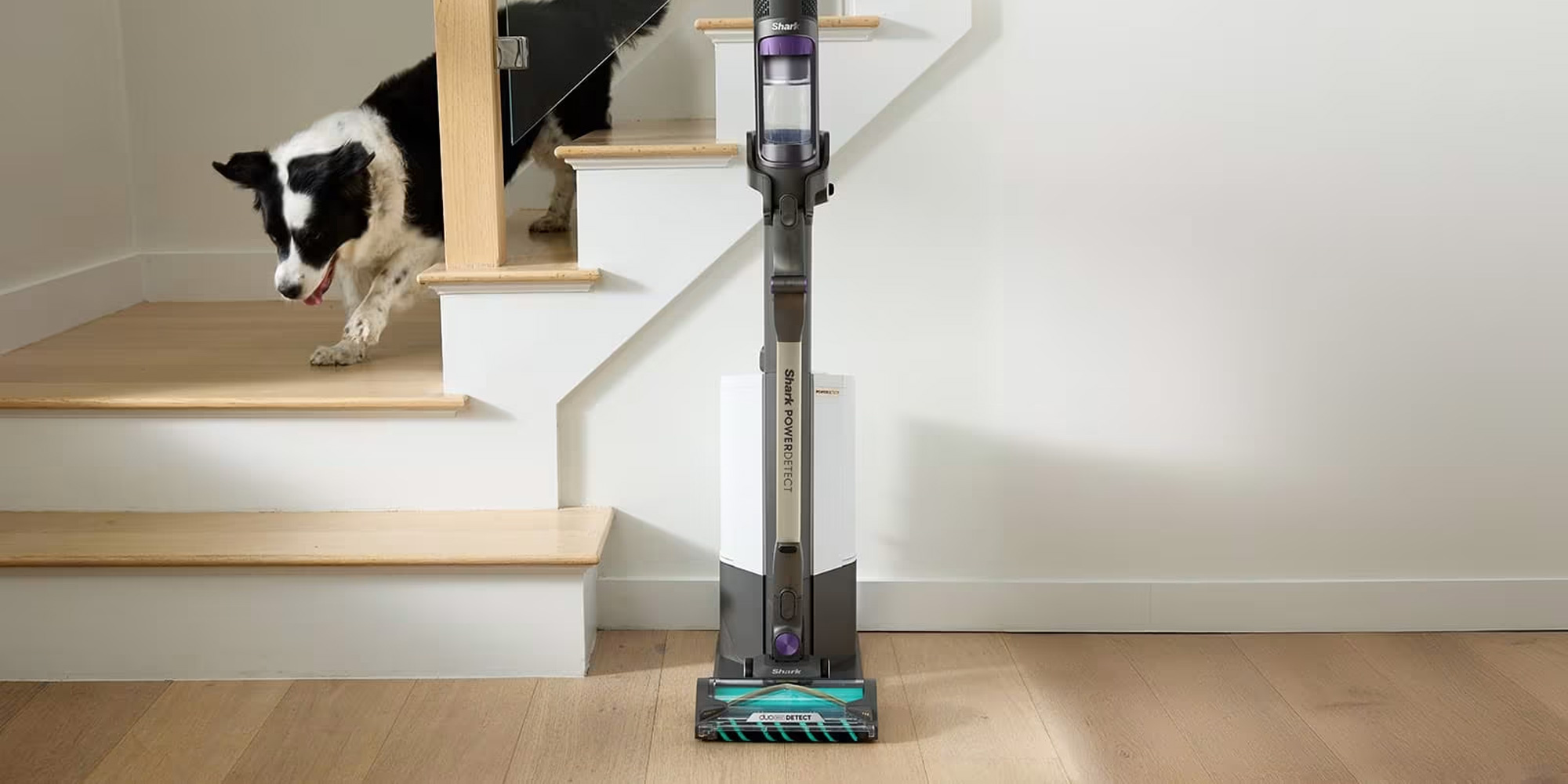By clicking a retailer link you consent to third-party cookies that track your onward journey. This enables W? to receive an affiliate commission if you make a purchase, which supports our mission to be the UK's consumer champion.
Why we got tough on cordless vacuum battery life

We know from our research that how long a cordless vacuum cleaner's battery lasts is important to you. However, too many vacs have battery life that just, well, sucks.
High-quality cordless vacs can last more than 20 minutes on maximum power, but weaker models will run out in less than 10 minutes. That's barely enough time to clean a couple of rooms, let alone the whole house.
We've now got tough on battery life so that no cordless vacuum can get a Best Buy if it won't last the distance. Read on to see how brands such as Dyson, Shark and Samsung compare for battery life.
Only the models that combine great battery life with top performance make it onto our round-up of the best cordless vacuum cleaners
How long do batteries last in cordless vacuums?

We test cordless vacuum cleaners on low-power mode while cleaning hard flooring, but also at maximum power on carpet where vacs need to work harder to suck up dirt, hair and debris.
According to our test results, the average battery life for a cordless vacuum is:
- 60 minutes on minimum setting on hard floors
- 17 minutes on maximum power on carpets
But how long do you actually need the battery to last?
It takes around 42.5 minutes to fully clean the average-sized UK home*, so if your house is fully carpeted and you're running the vac on max power, you'd need to charge the battery twice – and each charge takes three hours, on average – to get the job done.
The shortest-running battery we tested at max power lasted only seven minutes, so it'd take 16 hours and 20 minutes to clean the whole house, including five charging breaks lasting three hours each. Even the longest-running battery we tested at max power – which lasted 35 minutes – wouldn't manage the full clean.
On minimum power, the longest-running vac we tested comes with dual batteries that offer a combined battery life of 2 hours 27 minutes, so you could fully clean the house 3.5 times before you need to recharge. No surprise, then, that's also our highest-scoring model.
Best battery life on cordless vacs
Wondering which brand offers the best battery life? We've averaged the runtime on minimum and maximum power, plus overall battery life and charge time, for the popular cordless vacuum brands we've tested.
| Brand | Maximum power runtime | Minimum power runtime | Cleaning at minimum power | Battery life overall | Charging time |
| Bosch | 17 minutes | 70 minutes | 176 minutes | ||
| Dyson | 12 minutes | 61 minutes | 212 minutes | ||
| Gtech | 29 minutes | 42 minutes | n/a | 196 minutes | |
| Numatic | 17 minutes | 91 minutes | 171 minutes | ||
| Samsung | 19 minutes | 103 minutes | 202 minutes | ||
| Shark | 13 minutes | 43 minutes | 229 minutes | ||
| Vax | 13 minutes | 38 minutes | 140 minutes |
Table notes All data are averages per brand based on Which?-tested models. Our battery tests cover light use (minimum power on hard flooring) and heavy use (maximum power on carpet) scenarios. One star means that the cordless vacuum is almost ineffective on its minimum setting, whereas five stars means you'll get excellent results. Our tests also assess how long it takes to fully recharge the battery. n/a means that we don't have enough data to give a rating.
Sample per brand Dyson (9 models), Bosch (12 models), Gtech (5 models), Numatic (4 models), Samsung (7 models), Shark (8 models), and Vax (8 models).
How we've toughened up our tests
The battery dying when you're halfway through cleaning the house is frustrating. And it's no good having a long runtime on minimum power if the vac does a terrible job.
So we've toughened up our testing, and if a model doesn't get at least three stars in our overall battery life rating, it can't be a Best Buy. As you can see from the table above, the average overall battery life per brand could be better, but it really does vary by model, so check our reviews before making any decisions.
We prominently flag the models that give excellent cleaning and a long runtime. Our reviews also provide in-depth star ratings and specification information detailing aspects such as their minimum and maximum power runtime, how well they clean on low power and how speedily the battery recharges.
To find the models with the best battery life, visit our cordless vacuum cleaner reviews and use the ‘battery life’ filter
What impacts battery life, and what do about it

Battery type
The majority of cordless vacuums now use lithium-ion batteries, as they generally last longer than traditional nickel-cadmium or nickel-metal hydride batteries.
What to do It's unlikely you'll need to seek out a model with a lithium-ion battery, so just use our cordless vacuum reviews to find the highest-quality model.
Cleaning surface
The type of flooring you're cleaning will impact battery runtime – smooth laminate is less taxing for the vacuum than thick-pile carpet.
What to do Make sure you use the right power mode for the job. Only use maximum power setting when you really need it. Switch to low power or 'eco' mode when you're cleaning flat, smooth surfaces to prolong runtime and preserve the battery.
Battery degradation
All batteries degrade the more you use them, causing a reduction in capacity. After around 500 charging cycles, you can expect the battery on some of vacuums to drop by around a third at least. More frequent use at maximum power or intense recharging can cause the battery to degrade faster.
What to do Letting a cordless vac battery completely die before recharging is a bad idea. So, get into the habit of putting it on the charger before the battery fully drains. You could buy a spare battery and switch between the two, so that you always have a battery recharging, and prolong your cleaning time in the process.
Vacuum performance
Alongside different flooring types, vacuum battery life can also vary depending on how well the vacuum is maintained. If the filter or attachments get blocked, the vacuum will have to work harder than it needs to operate.
What to do Regularly clean the filter, and change it periodically when required. Run maintenance on the attachments and floorhead to prevent blockages that could cause the vacuum problems. Also, regularly empty the dust container as some vacs can lose suction when it gets full.
Can cordless vacuum batteries be replaced?

With the vast majority of cordless vacuums, you can replace the battery if it's started to fade in terms of performance.
Replacing the battery can give your vacuum a new lease of life, and you can generally do the installation yourself.
However, just be careful as the costs can vary widely between brands, and in some cases – if your vac is pretty old, for example – it can be more cost effective just to buy a new vac.
All costs listed below are based on original manufacturer parts. It is possible to go for a cheaper third-party option, but it's harder for us to guarantee quality and compatibility in that market.
- Dyson Based on our research, the average battery replacement for a Dyson vacuum will cost £103.40. As Dyson vacs tend to be quite expensive, this is a reasonably cost effective way to refresh one. You can usually find a tutorial on the Dyson website for replacing the battery for each model.
- Samsung Samsung's spare parts market could be easier to navigate, hence why the brand gets just three stars in our spare parts assessment. It's a little tricky to find the right replacement battery for your vac. When you do, we estimate you'll pay on average £162.66 to replace the battery, but again as Samsung vacs are pricey, this probably is worth it. How to replace the battery is usually covered in the vac's manual.
- Shark With a five-star rating for spare parts, Shark makes it easy and affordable to replace a vac's battery. A new one will cost around £100 and you get free next-day delivery from the Shark website. Replacing the battery is covered in the vacuum's manual, which you can also usually find online if you've misplaced the paper copy.
- Bosch At £104.33 (with a delivery charge on top), replacing a Bosch vacuum battery won't break the bank, and is much cheaper than buying a new Bosch vacuum. Instructions on how to replace the battery are in the manual and also sometimes on the Bosch website.
- Numatic Costing just £69.99 with free delivery, replacement batteries for Numatic's Henry and Hetty cordless vacs are among the cheapest on the market. You'll need to consult the manual or website to find out how to fit the new battery.
*The average-sized UK house is 85 square metres, and it takes circa 30 seconds to clean one square metre.




